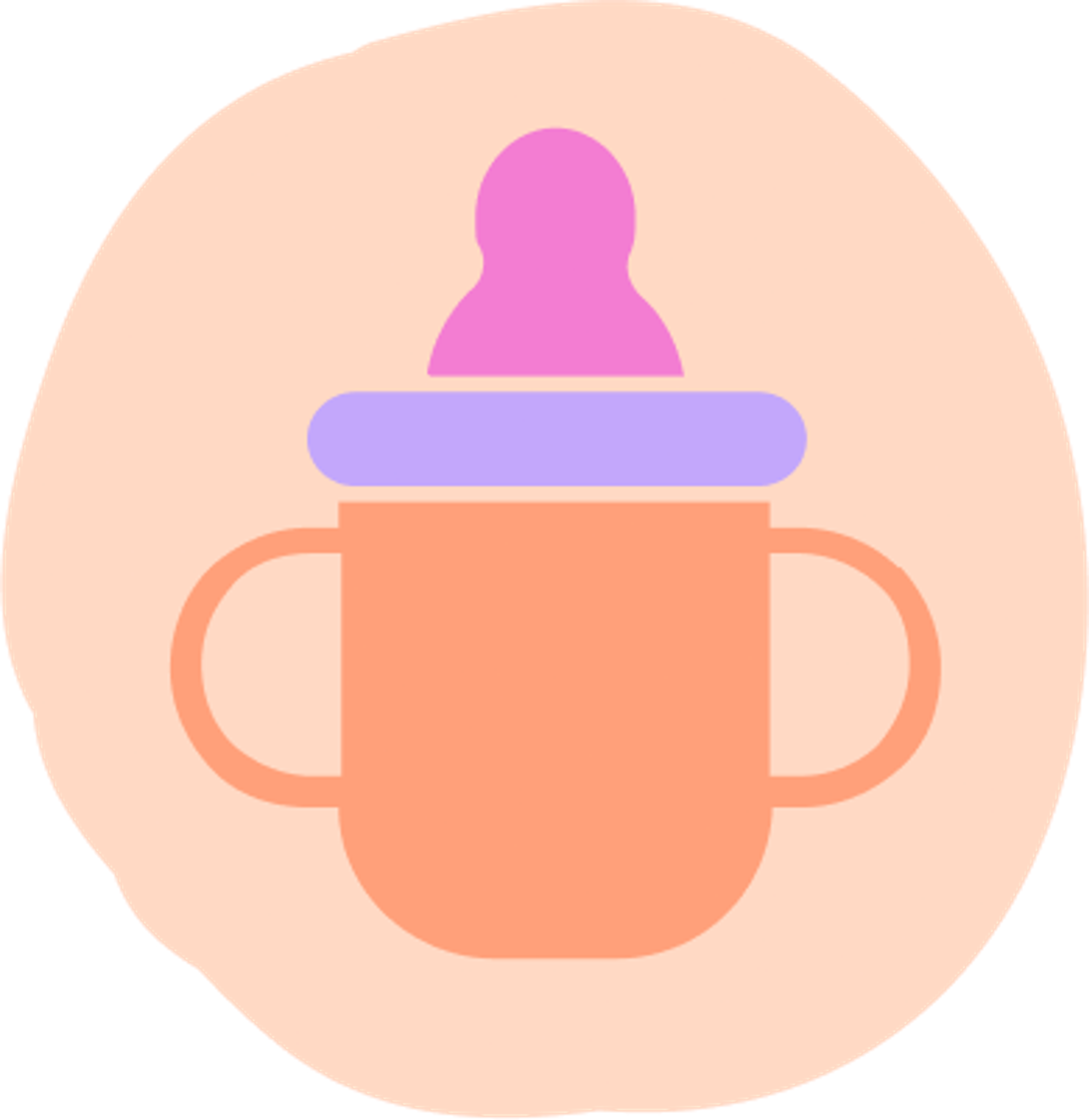Abortion Myths vs. Facts
There’s a lot of inaccurate, misleading and just plain bad information about abortion online — but decades of research from leading medical organizations around the world show the same thing: abortion is safe, effective, and does not harm long-term health or fertility.
Whether someone is looking for answers for themselves or supporting someone else, everyone deserves facts, not fear.
Below are the most Googled questions and myths about abortion — and the research-backed facts that debunk them.

Can abortion cause infertility or “barrenness”?
Nope.
Fact: Abortion does not cause infertility, sterility, or “barrenness” — none of those outcomes are linked to abortion.
Major medical organizations — including the American College of Obstetricians and Gynecologists (ACOG), the World Health Organization, and the National Academies of Sciences, Engineering, and Medicine (NASEM) — all agree that abortion does not impact your ability to conceive or have a healthy pregnancy in the future.
Both in-clinic (aspiration) and medication abortion (mifepristone + misoprostol) are safe, effective, and do not affect hormones, eggs, or the uterus. Serious complications are extremely rare.
Fertility often returns immediately, which means you can get pregnant again unless you use contraception.
Learn more:
- National Academies of Sciences, Engineering, and Medicine (2018): https://nap.nationalacademies.org/catalog/24950
- WHO Abortion Care Guideline (2022): https://www.who.int/publications/i/item/9789240039483
- American College of Obstetricians and Gynecologists https://www.acog.org/womens-health/faqs/induced-abortion#should
- Gynuity Health Projects research: https://gynuity.org
- StatPearls: https://www.ncbi.nlm.nih.gov/books/NBK430793/
Does having multiple abortions cause infertility?
Nope.
Fact: Having more than one abortion does not cause infertility or reduce your chances of having a healthy pregnancy in the future.
Many people have more than one abortion over the course of their reproductive lives. Pregnancy outcomes vary — including abortion and miscarriage — and both are common experiences. Having multiple abortions or miscarriages does not signal a medical problem or harm future fertility.
There is no medical evidence that multiple abortions increase the risk of infertility. A large study published in the American Journal of Public Health found that 45% of study participants had more than one abortion and that people who have multiple abortions are not at increased risk of future pregnancy complications or infertility.
Learn more:
- NHS Abortion Risks (2020): https://www.nhs.uk/conditions/abortion/risks/
- StatPearls — Abortion Complications: https://www.ncbi.nlm.nih.gov/books/NBK430793/
- AJPH Study (2018): https://pmc.ncbi.nlm.nih.gov/articles/PMC5771530/

Does abortion increase the risk of future pregnancy complications?
No.
Fact: Abortion does not increase the risk of miscarriage, ectopic pregnancy, stillbirth, or most future pregnancy complications.
Large medical reviews and population-level studies show that people who have had an abortion and later become pregnant have similar pregnancy outcomes to people who have never had an abortion.
Both medication and aspiration abortions do not cause scarring of the uterus, do not affect hormones, and do not interfere with implantation.
Learn more:
- National Academies of Sciences, Engineering, and Medicine (2018): https://nap.nationalacademies.org/catalog/24950
- Royal College of Obstetricians and Gynaecologists — Abortion Care: https://www.rcog.org.uk (general guidance)
- Norwegian registry study on pregnancy after abortion (2023): https://journals.plos.org/plosmedicine/article?id=10.1371/journal.pmed.1004129
Does abortion cause cancer?
No.
Fact: Abortion does not cause breast cancer or any other cancer.
One of the largest studies ever conducted — including 83,000 people with breast cancer — found no causal link between abortion and breast cancer. ACOG, the National Cancer Institute, and multiple global studies support the same conclusion.
Learn more:
- ACOG Committee Opinion No. 434: https://www.acog.org/clinical/clinical-guidance/committee-opinion/articles/2009/06/induced-abortion-and-breast-cancer-risk
- Collaborative Reanalysis (Lancet, 2004): https://pubmed.ncbi.nlm.nih.gov/15051280/

Does the abortion pill affect breastfeeding?
Nope.
Fact: The abortion pill does not negatively affect breastfeeding.
The National Library of Medicine reviewed both mifepristone and misoprostol and found that the amount that passes into breast milk is very low. Because these medications are considered safe to use while breastfeeding, people who are having abortions do not need to interrupt feeding, pump and dump, or pause breastfeeding.
Breastfeeding also does not change how abortion pills are absorbed or how well they work. The safety and effectiveness of medication abortion remain the same.
You can learn more in our full guide: Can I breastfeed during or after an abortion or miscarriage?
Learn more:
- LactMed (NIH) — Mifepristone and Breastfeeding: https://www.ncbi.nlm.nih.gov/books/NBK501922/
- LactMed (NIH) — Misoprostol and Breastfeeding: https://www.ncbi.nlm.nih.gov/books/NBK501922/ (misoprostol section)
Can abortion affect your mental health?
No.
Fact: Research shows what harms mental health is being denied an abortion — not receiving one.
People feel a wide range of emotions after an abortion: relief, sadness, clarity, anger, gratitude, or even a mix of all of them at once. All of these reactions are normal. What’s not true is the common myth that abortion itself causes long-term mental health problems.
The Turnaway Study found that:
- People who were denied an abortion experienced higher levels of anxiety and short-term stress.
- People who received the abortion they wanted overwhelmingly reported relief.
- Abortion does not increase depression, PTSD, or long-term anxiety.
If you or someone you know wants to talk through an abortion experience — with zero judgment — you can call the All Options Talkline.
Learn more:
- Turnaway Study — Mental Health Outcomes (2018):https://www.ansirh.org/sites/default/files/publications/files/mental_health_issue_brief_7-24-2018.pdf
Do most people regret their abortion?
No.
Fact: Most people do not regret their abortion.
More than 95% of people surveyed five years after their abortion said it was the right decision for them. Relief, confidence, and clarity were the most common long-term emotions — not regret.
Read stories from people who have had abortions at ineedana.com/stories and at Shout Your Abortion.
Learn more:
- UCSF Study (2020):https://www.ucsf.edu/news/2020/01/416421/five-years-after-abortion-nearly-all-women-say-it-was-right-decision-study

Is abortion dangerous?
No.
Fact: Abortion is one of the safest medical procedures available today.
- Most abortions take place in outpatient clinics.
- Complications happen in about 2% of cases — and most are minor and easily treated.
- Abortion is safer than childbirth, colonoscopies, and wisdom tooth removal.
- There’s no cutting, no medical need for general anesthesia (people can choose sedation if they want), and the procedure is minimally invasive.
Learn more:
- NASEM Safety Report (2018): https://nap.nationalacademies.org/catalog/24950
- NHS Abortion Safety Data: https://www.nhs.uk/conditions/abortion/risks/
Is there a medication to reverse an abortion?
No.
Fact:There is no scientific evidence that “abortion reversal” works — and attempts can be dangerous.
Leading medical organizations warn that “reversal” claims are not supported by science and can expose people to harmful interventions.
Learn more:
- ACOG — Medication Abortion Reversal:https://www.acog.org/advocacy/facts-are-important/medication-abortion-reversal-is-not-supported-by-science
- Creinin et al., Obstetrics & Gynecology (2020):https://journals.lww.com/greenjournal/pages/articleviewer.aspx?year=2020&issue=01000&article=00021&type=Fulltext

Abortion is a safe, common part of reproductive health care. Myths about infertility, cancer, mental health, or “reversal” are not supported by evidence — but they persist because accurate information is harder to find than misinformation.
People deserve clear, compassionate, research-backed facts.
For verified clinics, abortion funds, and trustworthy information, visit ineedana.com.